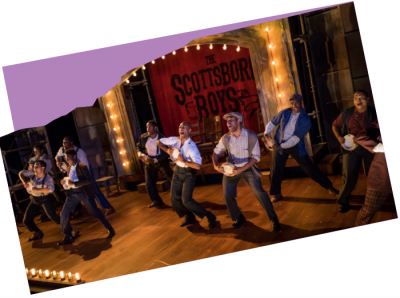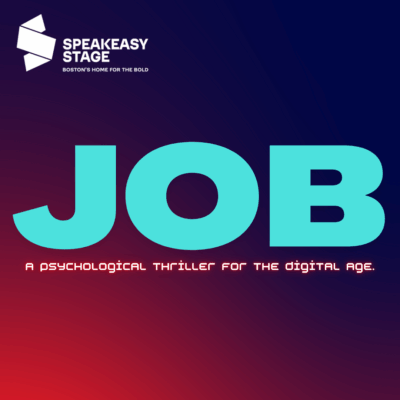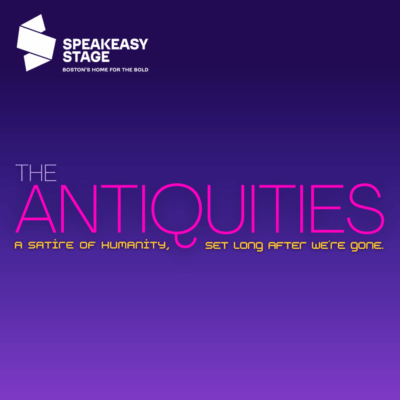Your donation sets the stage for a new season of Boston's most intimate, entertaining and provocative plays and musicals. Our shows make powerful connections with our audiences-- and they are only possible because of you.
Director M. Bevin O’Gara
Director M. Bevin O’Gara
Tell us about your long-term association with playwright Ken Urban and with this play.
I have known Ken for over a decade, but this is our first time working together on a full production. I don’t remember when we first met, but it must have been through the Huntington Playwriting Fellows program. Since that time, we have worked together on a number of readings and workshops. Still, the first day we got A FUTURE PERFECT up on its feet was exhilarating because Ken and I have had such a long history, but have never gotten to that point together. I kept saying “I can’t believe we actually get to stage this whole thing.”
How would you describe the story of A FUTURE PERFECT?
A FUTURE PERFECT is a play about our changing sense of self, about making decisions that will change our lives forever, and about changes that we may or may not have control over. It’s about the things we plan for and the things we never see coming that shape who we are for the rest of our lives. It’s also about our relationship to our former selves. And it’s about what it means to be someone’s partner and what it means to fail at being someone’s partner.
What attracted you to the play?
I love that Ken writes real people, characters with humanity and huge flaws. He’s not afraid to make you hate his characters one minute and then get you on their side the next.
I think this is also a story many people can relate to. It’s about friendship and success and how those things shift over time. How many of us haven’t lost a friend or a partner as we’ve evolved? It’s a coming-of-age story, but it’s about doing so for a second time. I think we can see a little bit of ourselves and our flaws in each of these characters.
How has the script evolved in the one and a half years you have been associated with it?
I think Ken and I have a much clearer idea of who these people are and what it is they are going after. We’ve also developed a clearer sense of why this needs to be a period piece (set in 2011) and how these external factors effect these people as they move from September of that year to November.
What do you see as the biggest challenge in bringing this story to the stage?
It’s a little play with A LOT of pieces. There’s a puppet, there’s a band, there are a bunch of cell phones, there’s setting two dinner tables, etc. Each of these individual pieces seems small, but once you start to put them all together, it becomes a bigger play. And all of the elements intertwine; you can’t know how to tell the story in the transitions until you know how long it’s going to take an actor to change or how many beers you have to strike from the stage. It’s been a very fun challenge, however, and all the actors and designers have been completely on board.
Tell us the importance of the musical elements to this play and of music to these characters.
These are people defined by the music they listen to. They have been shaped by these bands, and their own music has created their decades-long bonds. Without a shared interest in this music, these people would never have come together. In fact, it is music that continues to hold them together, and ultimately pulls them apart.
Is music a defining element in your life?
Music for me is less about defining a moment in my life and more about motivating me in a given moment or helping me understand and digest a feeling. I don’t define moments in my life by the songs I listened to at a particular moment, but I do use music to help shape my present. I do, however, have a very keen memory of what outfit I was wearing at several defining moments in my life.
What are some of the questions this play raises for you?
This is a play about trust and what level of trust two people need or want in a relationship. It’s about what we as individuals need to share in order to make our relationship stronger and what things can tear us apart. It’s about how outside events remind us of who we used to be and incite further self-exploration. The play asks, “Can we evolve as individuals and still evolve as a couple?”
Do you think those themes are applicable beyond the specific generation depicted here?
I think the characters in this play ask these questions more directly and more bluntly than previous generations, but these are universal human struggles. Grappling with how you define yourself, what you value, and what you will leave behind is just part of human nature. But is this generation tackling these issues with any more success than those who have preceded them? I don’t know.
 Past Productions
Past Productions Primary Trust
Primary Trust Lizard Boy: A NEW MUSICAL
Lizard Boy: A NEW MUSICAL JOB
JOB The Antiquities
The Antiquities Swept Away
Swept Away




